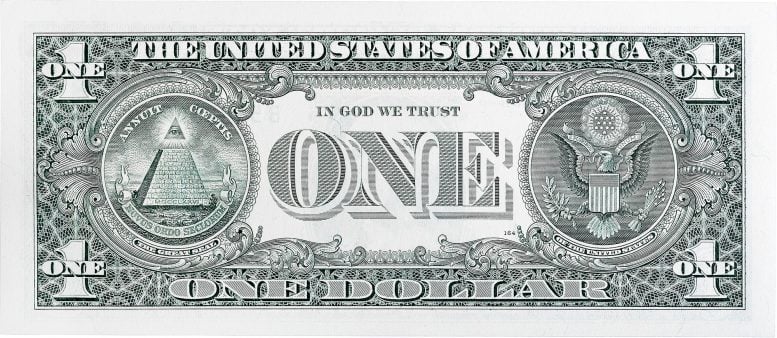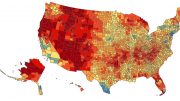
According to a 26-year study, a one-dollar increase in the minimum wage is linked to a fall in the suicide rate of between 3.5 and 6% among people with high school education or less.
Effects seem to be strongest during periods of high unemployment, shows 26-year study.
A $1 increase in the minimum wage is linked to a fall in the suicide rate of between 3.5 and 6% among people with high school education or less, reveals a 26-year study, published online in the Journal of Epidemiology & Community Health.
The effect seems to be strongest during periods of high unemployment, the findings indicate.
In 2017, there were more than 47,000 preventable suicide deaths in the USA, with suicides accounting for nearly one in five (19%) deaths among those aged 18-24. Between 1999 and 2017, suicide rates increased by more than 30% in half of US states.
Suicide risk is often associated with financial stressors, but less is known about the potential impact of economic interventions, such as minimum wage policies, on suicide rates.
To try and find out, the researchers looked at the difference between the effective state and federal minimum hourly wage for all 50 states and Washington DC and state unemployment and suicide rates among 18 to 64-year-olds, for every month between 1990 and 2015.

The researchers estimated a 3.5-6% reduction in suicides for every dollar increase in the minimum wage among 18-64 year olds with high school education or less.
Between 1990 and 2015, there were 478 changes in state minimum wages across US states. The average difference in wages between the states at and above the federal minimum wage was US$ 2200/year for a full-time worker.
In 1990, 36 states had a minimum wage equal to the federal rate; by 2015, this had fallen to 21 states.
Between 1990 and 2015, 399,206 people with high school education or less took their own lives compared with 140,176 people with a college degree or higher.
The researchers estimated a 3.5-6% reduction in suicides for every dollar increase in the minimum wage among 18-64-year-olds with high school education or less. No such effect was apparent among those who were educated to college level or higher.
The association between minimum wage and suicide rates differed by state-level unemployment rate during the 26-year timeframe.
When this was high (above 6.5%), progressively higher minimum wages were associated with lower suicide rates; when unemployment was low, on the other hand, the association with the minimum wage weakened.
Based on these estimates, the researchers calculated that after the 2009 peak in unemployment following the financial crash, 13,800 suicides could have been prevented between 2009 and 2015 among less well-educated 18-64 year-olds if a US$1 dollar increase had been added to the minimum wage. A US$2 increase could have prevented 25,900 suicides, they calculated.
Over the entire 26-year period, the researchers estimated that a US$1 increase in state minimum wage could have staved off 27,550 suicides in this group of workers, while a US$2 increase could have staved off 57,350 suicides.
This is an observational study, and as such, can’t establish cause. But, conclude the researchers: “Our findings are consistent with the notion that policies designed to improve the livelihoods of individuals with less education, who are more likely to work at lower wages and at higher risk for adverse mental health outcomes, can reduce the suicide risk in this group.”
They add: “Our findings also suggest that the potential protective effects of a higher minimum wage are more important during times of high unemployment.”
Reference: “Effects of increased minimum wages by unemployment rate on suicide in the USA” by John A Kaufman, Leslie K Salas-Hernández, Kelli A Komro and Melvin D Livingston, 7 January 2020, Journal of Epidemiology & Community Health.
DOI: 10.1136/jech-2019-212981









Fake (and very expensive) news.
Listen minimum wage is minimum for a reason. They are jobs intended for teenagers or folks who also receive tips. These type of JOBS are not intended to be CAREERS. You arent supposed to make enough money to buy a home, make car payments and support multiple children while making minimum wage. Thats just how life works. Instead, we keep raising the minimum wage, and thats what makes inflation so insane. These days to make a decent living with a home, cars, and kids you need to make 100k, all because the people that stand at the door at Walmart make $15\hr instead of the $8 that they should.
I couldn’t disagree more. People have to make a living in today’s economy. There’s no if, ands, or buts about it. When was the last time you were at Walmart? Have you saw the people at the door? They’re usually a retired, or semi disabled individual who can’t make it on what the government allows them to draw. You’re argument of not being able to afford a house or car unless you’re making a hundred thousand is outlandish as well. Allow these people a life with dignity too. The dignity to make their way in a very financially unbalanced world. You’re whining that you can’t afford the 5 bedroom house with a pool and drive a new Mercedes when you can do just as well with what you need. You sound greedy. Earn your money just like those people do and don’t over spend on your kids. If you’re going to overspend on them, overspend your time.